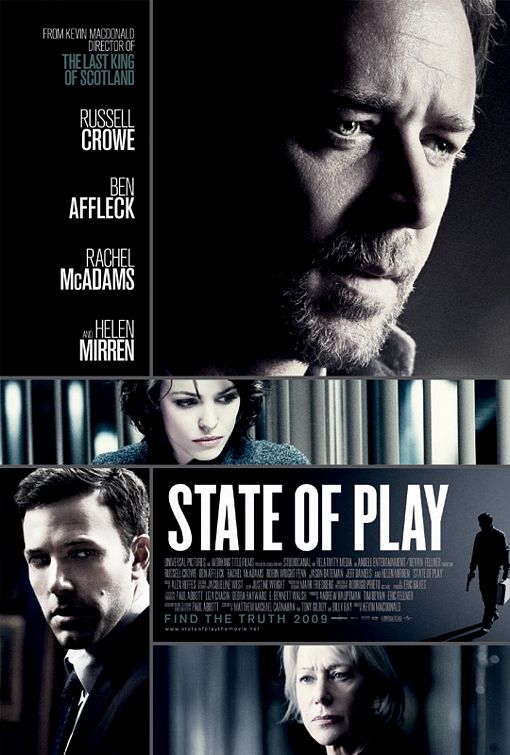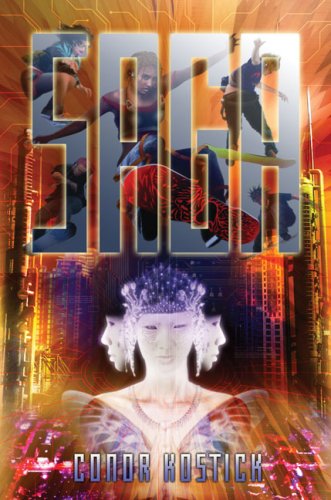You all know them, even if you've never put a name on them. In books, it could take the form of 2nd person narrative (
you look around in wonder, etc.), versed poetry, or breaking of the fourth wall. In television and movies, it may be special effects, shaky camera work, abrupt endings (especially in series finales, which I will no doubt get to eventually), or, again, some form of wall-breaking. These can either go wonderfully well or horribly awry, depending on who's handling the material. Here are a few:
Meta-ReferencesThis is very similar to breaking the fourth wall (a term dirived back in the days when people still went to plays and called them 'theatre'. It goes back to Shakespeares' A Midsummer's Night's Dream, when the character Puck would directly address the audience, talking through what would've been the stage's literal fourth wall), but instead of outright talking to the members of the audience, it references people from the movie or show or play, either they themselves or things they've done. For instance, if Madonna were to do a movie which involved some sort of female-bonding-type dance sequence in a kitchen involving makeshift spoons\microphones, and the song she'd be lip-syncing to were, say, "Material Girl" or "Vogue", this would be a meta-reference (also acceptible: one of her gal-pals saying that Madonna's character sounded 'nothing' like the singer).
How it went well: F. Scott Fitzgerald's second novel, "The Beautiful and Damned", in which a novelist character complains about how every girl he meets asks him if he's read "This Side of Paradise". This is, if you skipped this entire paragraph and can't see what's coming next, F. Scott Fitzgerald's first novel. Also seen in 'Fight Club' (movie).
How it sucked: That whole "Ocean's Twelve" abortion where Julia Robert's character attempted to pull off a scheme the guys cooked up where she pretended to be--well, you can guess. Also present is Bruce Willis and that very annoying 'My-God-How-Could-You-Possibly-Think-That-Would've-Worked-The-Nose-Is-All-Wrong' schtick. Also see Meta-jokes, metafiction, metafilm, meta-language, meta-discussion, meta-knowledge, frame story, story-wthin-a-story, etc.
Deaus ex machinaLiterally translated as 'god from the machine', is a plot device in which a person or thing appears or is introduced suddenly and unexpectedly and provides a contrived solution to an apparently insoluble difficulty. The overall consensus is that this is borth a cheap and lazy way to neatly end a story, often featured in high school short story assignments and the lesser, Direct-to-DVD horror flicks featuring a cast member from Gossip Girl or whoever.
How it went well: Shakespeare used this technique quite often and, as expected, kicked it's bitch ass. The famous 'aliens-destroyed-by-Earth-bacteria' ending to War of the Worlds. Also, Adaption. by Spike Jonze and starring Nicholas Cage, Meryl Streep, and Chris Cooper (who won an Oscar for his role), used this, but it's okay because they knew it, and in fact referenced it (the device) several times. The fact that they used it was ironic, so they can be forgiven (meta references which are too complicated to explain are present as well).
How it sucked: Most everywhere else that's not a TV-MA-rated cartoon.
Shaky CameraThis is the technique seen in movies to add realism to the whole thing, such as the Jason Bourne series, but is also used as the extremely gimmicky 'found footage' film, as in 'Cannibal Holocaust', 'The Blair Witch Project', 'Jimmy and Judy', and 'Cloverfield'
. How it went well: Blair Witch, Jimmy and Judy, Cannibal Holocaust
. How it sucked: Cloverfield.
Shocker Series FinalesThe series finale is what a TV show is most remembered for--that is, if it doesn't come out with a spin-off show at the last minute. That's why the creators always try to leave a mark. You know--everyone dies, everyone's happy, everyone leaves, whatever. I could go on the very best of them, and there are plenty--
The Prisoner's head-scratching, 500-new-questions closer, Mary Tyler Moore's sentimental goodbye, Blake's 7's bloody example how you don't fuck with imaginative producers, the end of a war that the soldiers of M*A*S*H have been fighting twice as long as everybody else, Dinosaur's sobering and unsettling foreshadowing to the cruel extinction of the prehistoric characters (with a lovely enviromental message to boot), St. Elsewhere's drastic retcon, Kids in the Hall's grave-dance, Mystery Science Theatre's...thing, the X-Files' end-of-the-world scenario, the Sopranos' mid-sentence blackout, Six Feet Under's closer that seriously needs some Vicodin, both of the Life on Mars' (BBC and CBS versions), Roseanne's last-minute confession, and Newhart's hilarious awakening from an eight-season-long dream. The only bad ones are the ones that didn't know they were cancelled--the cliff-hanger, especially.
RetconThe undoing of an already established fact, whether intentionally or not. This is often seen in sitcoms, shaping a character's age to fit into the recent storyline
. How it went well: Roseanne taking back the ludicrus final season, as well as pretty much everything after the 3rd season, SNL's disowning of the recent past's seasons via Madonna
. How it sucked: That Dallas thing. What the fuck was that?
Chuck Cunningham SyndromeNamed after the Happy Day's character that disappeared without a trace, he was followed by little Judy on Family Matters (and look how she turned out), Donna's two sisters on That 70's Show, and a million other places, mostly sitcoms. Not a gimmick, but ridiculous all the same.













